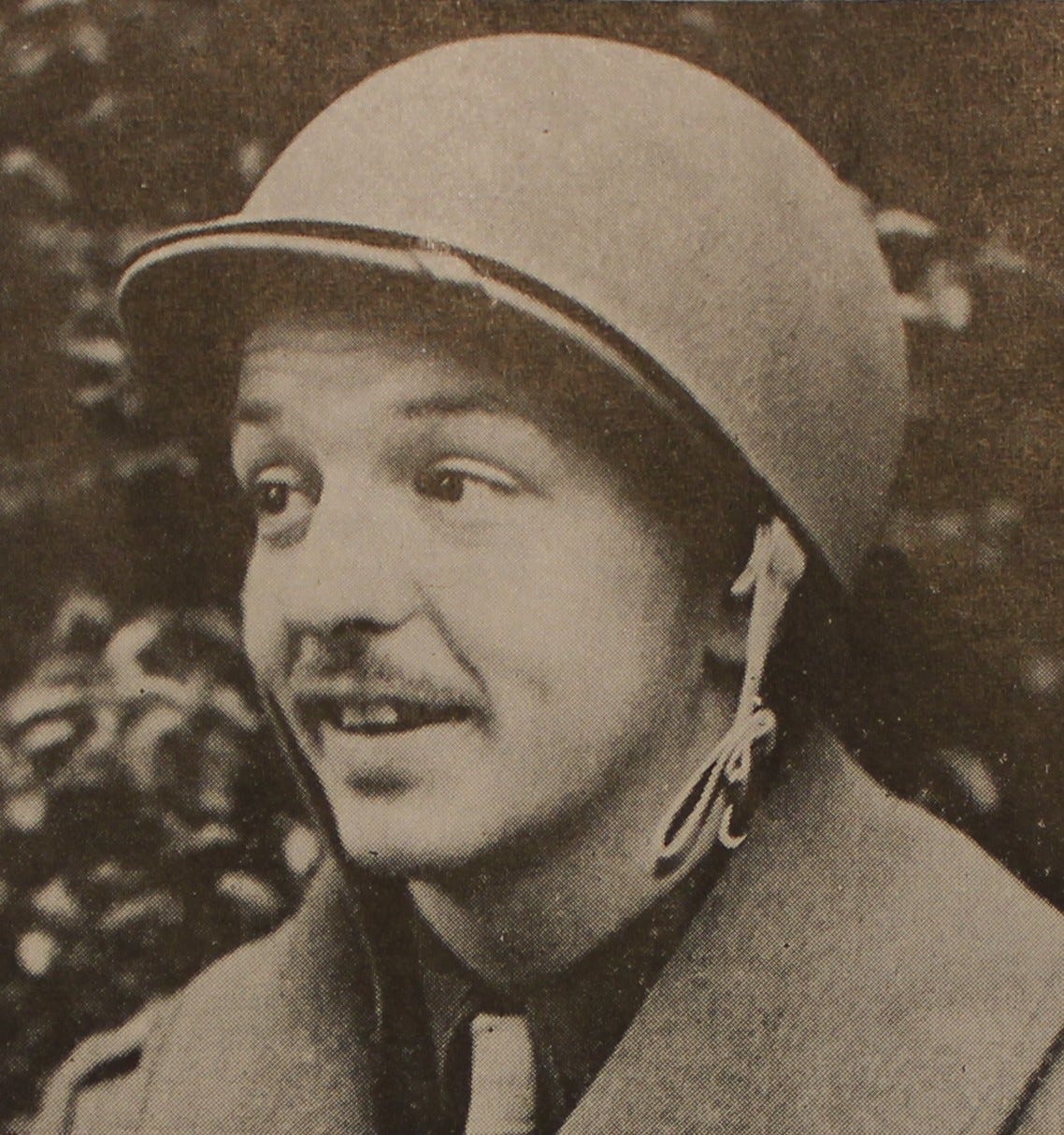G.K. Hodenfield at Pointe du Hoc
One of the countless security concerns addressed by the men who planned Operation Overlord involved press correspondents. SHAEF feared that the sudden disappearance of numerous London-based reporters at once might signal to the Germans that invasion was imminent. Their solution was to enact what amounted to a series of dry runs, in which correspondents were phoned and told to report to this or that location in England on short notice throughout the spring. It became part of the routine.
Lt. G.K. Hodenfield of Stars and Stripes showed up on the south coast following one of those calls and wearily asked the colonel in charge where they were headed for their latest training run. The colonel raised an eyebrow and pointed to a spot on a map, but Hodenfield couldn't place it.
"Colonel, I know the south coast of England, but I can't figure it out," he is said to have remarked. "Where is the landing in relation to, say, Plymouth or Bournemouth?"
"Hod," the colonel answered, "that's not the coast of England."
So it was that Hodenfield, born Sept. 29, 1915, embarked on one of the most harrowing assignments of any correspondent covering D-Day: accompanying the 2nd Ranger Battalion in scaling the cliffs at Pointe du Hoc.
It took several days for Hodenfield to get his report back to Stars and Stripes' London office, and his eyewitness account was finally printed in the June 12 edition. The story covers the Rangers' first two and a half days on the ground in France.
"At H-hour the LCAs touched down and the Rangers scrambled ashore," Hodenfield wrote. "German machine-gunners and snipers opened up, but the men started scaling the 100-foot cliffs as if this were just another maneuver. The Germans on top rolled hand grenades down the slopes, they tried to cut toggle lines, they threw everything they had at those men coming at them -- but they didn't stop them. In little groups of twos and threes they scrambled over the top and went to work."
His initial story was relatively straightforward, but Hodenfield opened the curtain on the human drama of the day decades later. Writing for the Associated Press in 1984, he shared this scene:
You make friends quickly in combat, and lose them just as quickly. I had spent much of the trip in the LCA kidding with a Ranger who said he would never understand why a reporter , who really didn't have to, would go along on what was certain to be a suicide mission for about half the Rangers.
He was a great guy, and I wish I had learned his name. Shortly after our LCA turned west and headed for Pointe du Hoc, a German rifleman on the cliffs shot him through the head. He toppled over quietly at my feet.
Hodenfield made it through the operation unscathed and was awarded a Bronze Star for his work in covering the story.
He later spent more than 20 years at the AP, finding a niche covering education, and later worked for the Indiana University News Bureau. He died in 1992 at age 76.




